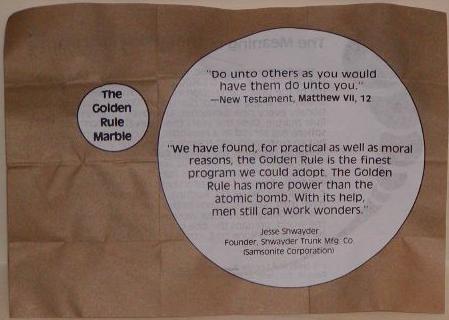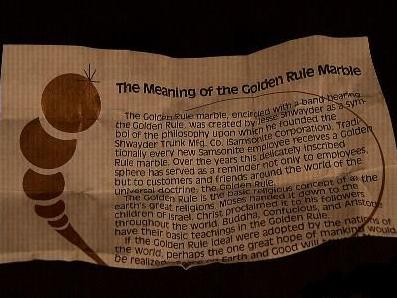Why Gov. Bill Haslam should veto HB0600
Rep. Glen Casada was the Tea Party pick for House Speaker to lead their divisive charge through Tennessee government, but the state’s Republican Party wisely chose their best leader instead by electing the first female Speaker of the House in state history.
There is a reason Rep. Casada’s own party didn’t entrust him with that power, and it’s the same reason Gov. Bill Haslam should veto HB0600.
Republicans ran on a jobs agenda, but the video above clearly shows where jobs falls on the agenda of Rep. Glen Casada and how much time his politics takes away from serious issues. This session proved that point yet again to the voters of Tennessee.
Rep. Casada was so desperate to stop Nashville’s local city government from extending work place protections to its citizens that Casada convinced lawmakers that Tennessee’s most respected job creators wanted to defeat such protections as well.
Rep. Casada worked with friends at the TN Chamber of Commerce who willingly borrowed the prestige of some of their most innovative and successful brands creating jobs in districts across the state: FedEx, AT&T, Comcast, DuPont, Pfizer, Blue Cross, Blue Shield, Caterpillar, KPMG, Whirlpool, Embraer and United HealthCare.
But there was just one problem with that. As these brands are just now finding out this week, the Tennessee Chamber of Commerce misappropriated and misrepresented their values to lawmakers, the governor and the voters of Tennessee. Here’s some of the statements released in the past few days:
Alcoa:
“Alcoa provides equal employment opportunity without discrimination and supports state and local legislation protecting the rights of all community members. We do not agree with the chamber on this issue and would ask that the governor veto the bill.“
FedEx:
FedEx did not lobby for SB632/HB600 – it is our policy not to discriminate on the basis of sexual orientation or gender identity. While FedEx is a member of the Tennessee Chamber of Commerce, we do not support every position proposed by the Chamber.
Nissan:
HB600/SB632 has become more closely associated with eroding civil liberties than fostering a strong business climate and this we do not support.
This is the kind of politics Rep. Glen Casada engages in. It’s the only kind of politics that makes good business distance itself from Tennessee, and it’s all that’s left for politicians who give up on serving their people.
Governor Haslam, don’t be the kind of governor that lifts up this kind of politics. Be Tennessee’s governor, and tell the legislature to focus on your jobs agenda by vetoing HB0600.
TAKE ACTION: use the following form to send a message to members of the Tennessee Chamber of Commerce.
UPDATE 5-23-11 12:34pm: KPMG is now the latest major job creator in Tennessee to join Alcoa, Nissan, FedEx and AT&T in calling out the Tennessee Chamber of Commerce’s misuse of their brands. Tell Gov. Bill Haslam to embrace the pro-business politics of our state’s very best job creators and stop legislative efforts to push them away.
KPMG did not vote to support the Chamber’s adoption of a policy to back this bill, nor do we support the legislation, the effect of which runs counter to KPMG’s policies, core values and our long-standing support for diversity in the workplace in all its forms. KPMG fosters an environment of inclusion and we encourage our employees to share their views, sexual orientation and gender identity, broadening everyone’s awareness of individual differences. We are proud of our record and the fact that Diversity Inc recently named KPMG the top firm for LGBT employees.
UPDATE 5-23-11 2:08pm: UnitedHealth is the latest job creator in Tennessee to distance itself from the TN Chamber of Commerce in an expression of their much better values:
UnitedHealth Group believes in recruiting and retaining a workforce that mirrors the multicultural communities we serve. A mix of different backgrounds and perspectives helps us develop strong products and programs our customers need. As part of that commitment, UnitedHealth Group supports and offers domestic partner benefits. We did not lobby for nor support Tennessee SB632/HB600.
UPDATE 5-23-11 4:00pm: Comcast issues statement opposing this law saying it “sends the wrong signal across Tennessee and around the country”
At Comcast, we believe it’s simple: discrimination is wrong. Our policy of non-discrimination provides the same protections to all our employees, whether in Tennessee or any other state. Consistent with that, we don’t support Tennessee SB632/HB600. Comcast agrees with the NGLCC, “No one should be judged by his or her sexual orientation or gender identity in the workplace. In this delicate economic climate, diminishing the rights of LGBT people sends the wrong signal across Tennessee and around the country.”
UPDATE 5-23-11 4:29pm: Whirlpool joins Tennessee’s most successful companies in opposing HB600 and the values expressed by the Tennessee Chamber of Commerce.
Whirlpool Corporation opposes this legislation, which runs counter to our core values of diversity and inclusion. We are reaching out to the Governor’s office and the Chamber to inform them of our position.
UPDATE 5-23-11 5:27pm: Embraer “does not support the Tennessee Chamber of Commerce’s position.” Governor Haslam, let’s stand with the very best industries in Tennessee.
While we are members of the Chamber of Commerce, Embraer has not lobbied for the SB632/HB600 and does not support the Tennessee Chamber of Commerce’s position on this or any initiative that limits the principle of diversity and inclusion in the workplace.
UPDATE 5-23-11 6:00pm: Gov. Bill Haslam has signed HB600, siding with a divisive political agenda over the pro-business values and policies of Tennessee’s best job creators. Gov. Haslam has chosen to lift a brand of politics in Tennessee that good businesses and the nation’s best job creators vocally oppose.
UPDATE 5-23-11 6:30pm: TN Chamber of Commerce President Deb Woolley issued the following statement well after the consequences of her decision to lobby against pro-business values and policies of Tennessee’s most successful employers. Woolley could have called the Governor herself and told him not to sign. She didn’t. The Tennessee Chamber of Commerce deserves a caliber of leadership that best represents the values and successful business practices of its very best members and job creators.
The Tennessee Chamber supports a standard regulatory environment at the state level as opposed to potentially conflicting local regulations covering employment practices. That principle was the only interest the Chamber had in this bill. Because HB600/SB632 has turned into a debate on diversity and inclusiveness—principles which we support—we are now officially opposing this legislation in its present form.
Adopted unanimously May 23, 2011
DEB WOOLLEY, PRESIDENT
TENNESSEE CHAMBER OF COMMERCE & INDUSTRY
Also Read:




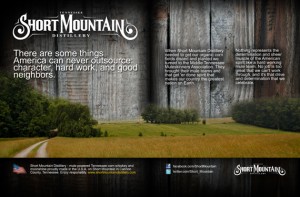

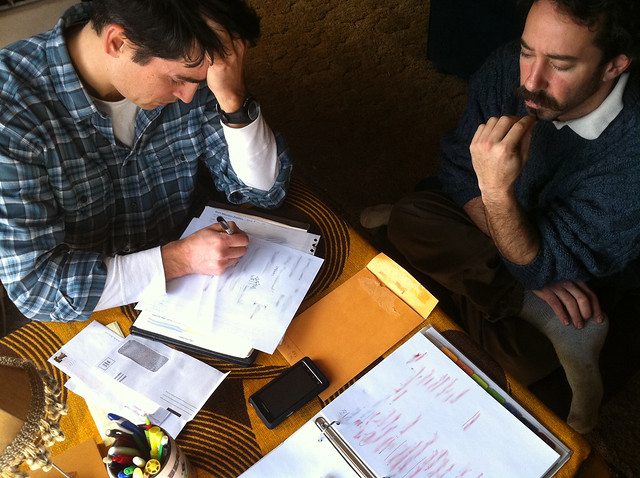
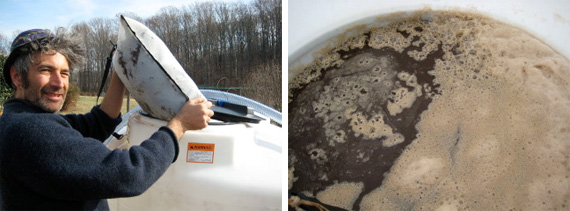
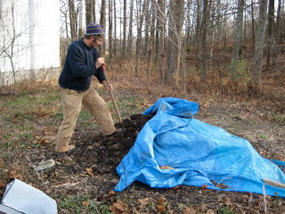 IT’S ABOUT SUSTAINABILITY: Last week, Sandor whipped up a big brew of compost tea that Billy and John sprayed on the
IT’S ABOUT SUSTAINABILITY: Last week, Sandor whipped up a big brew of compost tea that Billy and John sprayed on the 
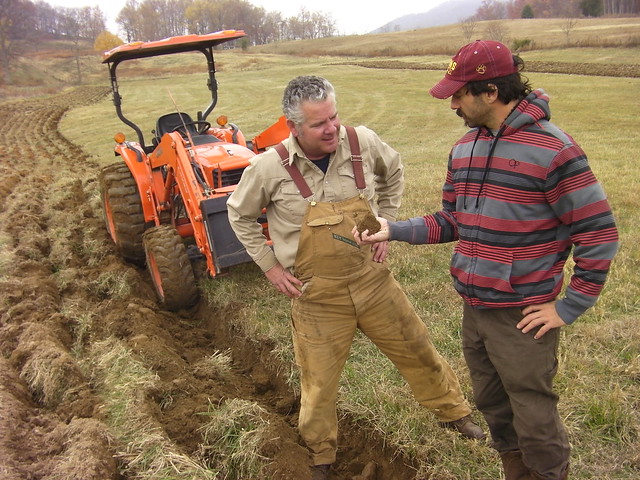

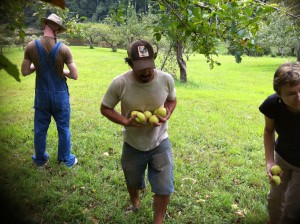
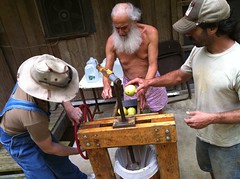
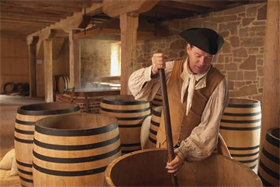 Distilleries have always been a part of American culture. Nearly every single one of our founding fathers distilled spirits, and one of the first taxes they levied on the American people to pay for war and to build our nation was the Whiskey Tax.
Distilleries have always been a part of American culture. Nearly every single one of our founding fathers distilled spirits, and one of the first taxes they levied on the American people to pay for war and to build our nation was the Whiskey Tax.

